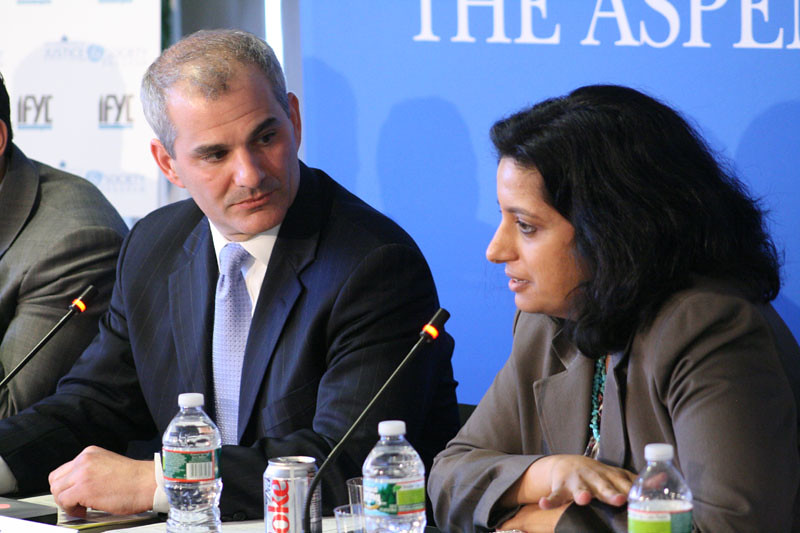As we move into the season of Easter and Passover, with significance for so many Americans, Washington has been the scene of two disparate events that should cheer all of us who have been distressed by the recent polarizing narrative around religion in America.
Earlier this week the Grand Mufti of Bosnia, Mustafa Ceric, presented a copy of the Sarajevo Haggadah to a member of Congress at a private home here, and related its extraordinary history. The Sarajevo Hagaddah is an illuminated manuscript, one of the oldest Sephardic Haggadahs in the world, originating in Barcelona around 1350. It was carried from Spain by Jewish refugees expelled during the Inquisition, made its way across Europe, and was sold to the Museum in Sarajevo at the end of the 19th century. During World War II, the manuscript was hidden from the Nazis and Ustashe by the Museum’s chief librarian, who gave it to a Muslim cleric in Zenica, where it was hidden under the floorboards of either a mosque or a Muslim home. In 1992, during the Bosnian War, the Haggadah manuscript survived a museum break-in, and was later hidden in an underground bank vault when Sarajevo was under constant siege by Bosnian Serbs. The President of Bosnia presented the manuscript at a community Seder in 1995, and today it is on permanent display in the National Museum of Bosnia-Herzogovinia.
The Grand Mufti closed his story with a plea to the Congresswoman—just as Muslims had risked their lives to protect this extraordinary book, so too should Americans strive to protect the Muslim Quran from the indignity visited on it by a hateful Florida man who cloaked his acts in the language of religion.
It was not the first time in recent weeks that I have been reminded that, at our best, we are stewards of one another’s faith tradition. On March 30, the Justice and Society Program and the Interfaith Youth Core co-hosted America the Inclusive, a one-day symposium that examined American religious pluralism, and what can be done to foster religious inclusivity. In the room were a remarkable collection of young leaders and seasoned professionals from government, NGOs, media and academia. Motivated by concern over the increasing prevalence of anti-Muslim rhetoric, the group came together to discuss three facets of the question—the role of media, integration as a national security asset, and the role of community-based partnerships in fostering positive, trust-based relationships.
It’s one of those times that doing what is right is also doing what is smart. Integration of young people of different faith backgrounds has always been a feature of American life. Yet since September 11, there has been a growing atmosphere of distrust that has risked marginalizing American Muslim youth. This hurts all of us. We risk losing part of the rich diversity of the American social fabric; and we create the conditions where young people can be preyed upon by extremist ideologues. Beyond such utilitarian concerns, we diminish what we are as a nation, founded by men who sought to create “a city on a hill”—a place where every American can practice their faith in safety and tranquility.
We can do much more than wring our hands over the current negative cycle. Surveys by the Pew Foundation and the Gallup Foundation support what common sense counsels—the best was to overcome bias is to create positive relationships between people of different religious traditions. We can do this in the classroom and outside, on soccer fields, in service projects, through the workplace and in the mix of our media. That is why, over the next months, the Aspen Institute and IFYC will partner on a project to develop specific action steps that institutions and organizations can take to foster religious pluralism and respect. As we progress, I will provide further reports.
Watch full video from America the Inclusive
.


